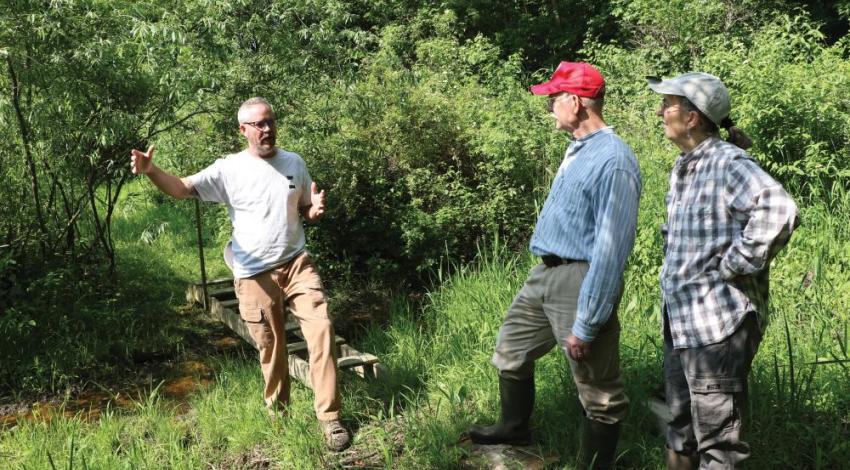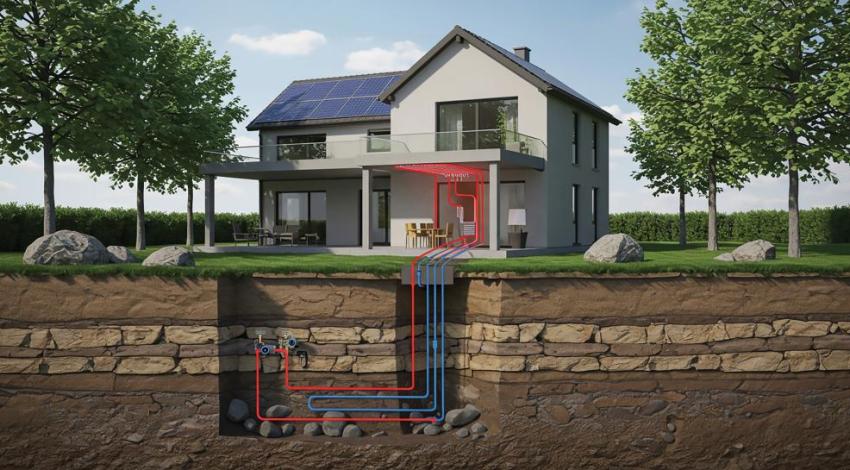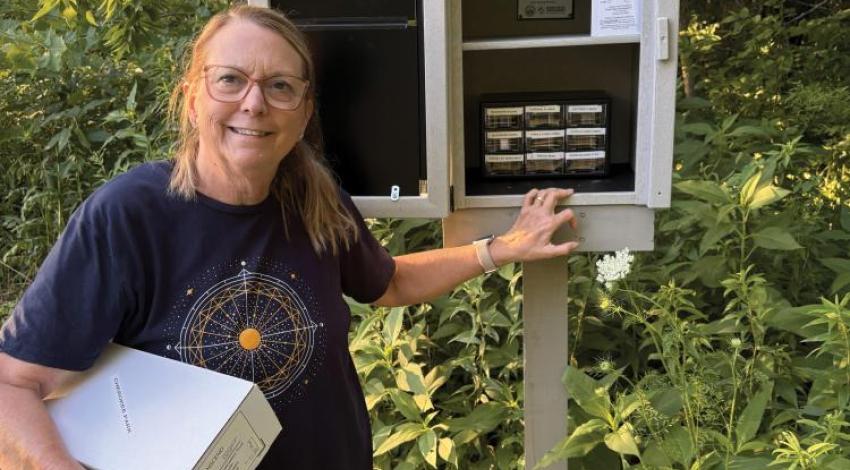Dave Buschur and his wife, Danielle, had financing help from Midwest Electric when they decided to expand their business in the Marion Industrial Park in Mercer County.
Dave Buschur saw the opportunity for his business; he just wasn’t sure he could take advantage of it. Buschur is president of Buschur’s Custom Farm Service in Maria Stein, which, among other services, hauls poultry, swine, manure, and grain for area farmers.
“We saw a need for a bio-secure automatic washing facility for trucks and trailers,” Buschur says. “It’s not a requirement, it’s just good practice to decontaminate after every run — you sure don’t want to be the reason anyone’s birds get sick — and there’s nothing else like this around for 500 miles.”
Adding a washing facility at Buschur’s location in the Marion Industrial Park would allow him to hire as many as 10 new employees. He knew the local electric cooperative, Midwest Electric, of which both he and his business are members, administers a loan fund that can help out with exactly that kind of opportunity. So, along with his own equity and that of his business partner in Pennsylvania, Buschur was able to secure much of the financing for the $1 million facility from a local bank, a bit more from the Mercer County Economic Development Office, and the rest from the Midwest Electric Revolving Loan Fund, which has provided nearly $2 million in low-interest financing to spur economic development since its first loan to the Village of St. Henry 10 years ago.
“There are so many examples where Midwest Electric has been a key partner for us making development happen,” says Jared Ebbing, Mercer County’s economic development director. “Without the co-op as a key collaborator, for example, this whole industrial park would still be a cornfield in the middle of nowhere.”
Attraction and retention
The way Midwest Electric is improving the quality of life for businesses, residents, and workers around it is emblematic of the partnerships that the state’s electric co-ops have with economic development officials across Ohio.
One of the most significant components of this relationship is how the electric co-ops work in conjunction with JobsOhio and its regional partners: Columbus 2020, Regional Growth Partnership, Appalachian Partnership for Economic Growth, Dayton Development Coalition, and Team NEO. The electric co-ops have created a program to further relationships with their local economic development partners by providing grants for site assistance and community development.
Katy Farber, vice president of the Appalachian Partnership for Economic Growth, says the co-op grant money is invaluable for business investment and job creation.
“Many of our rural communities don’t have the money to perform the studies or assessments that are needed as part of the due diligence for these sites,” Farber says. “Having a ready site, with everything documented, gives us a good shot at siting a project.”
The grants have helped the Appalachian Partnership with two recent locations: Buckeye Rural Electric supported the Dan Evans Industrial Park in Gallia County, and South Central Power Company assisted the Leesburg Industrial Park in Highland County.
“Those sites will go for attraction projects, but I’m also working with one landlocked company that wants to expand significantly,” Farber says. “They may look at putting an additional facility at one of these locations that’s nearby. We think about the grants for attracting new businesses, but they could be for attracting new investment and job growth from our existing businesses, too.”
Community commitment
Dennis Mingyar, director of economic development at Buckeye Power, the generation company that provides electricity to Ohio’s electric cooperatives, says the co-ops will soon begin awarding smaller grants for other programs that will help business and community development in electric cooperative-served areas.
“It’s easy for a community to find money for infrastructure development, but much harder to find that softer money, for example, to create a marketing plan,” Mingyar says. “We’re trying to fill a niche. Communities can take advantage of programs to perform an environmental cleanup, but our funds will help pay for the study itself. This program helps to satisfy unmet needs in the community.”
Beyond the grant money and the services co-ops offer businesses, there’s a deeper connection that’s measured by the value of relationships. The co-ops are locally owned, locally controlled, and locally operated — meaning they know the challenges that their members face and are able to work more closely with them to find fixes.
“If you’re trying to start or expand a business, you’re important,”Mingyar says. “You can get to a person at the co-op and say, ‘I’m trying to start a brewery, a restaurant, or other business,’ and because we understand our communities, we’re going to work with you closer because we view you as a partner.”
Powered by co-ops
Buckeye Power’s business consumer-members range in size and complexity from mom-and-pop storefronts to Fortune 500 industrial giants. A few Ohio businesses and facilities proudly served by electric cooperatives in Ohio:
- Honda of America manufacturing plants: the Marysville Auto Plant, Anna Engine Plant, and Honda Transmission.
- The Kroger Great Lakes Distribution Center, which employs 800 associates and annually distributes 1.3 million tons of grocery product to 260 stores. The Iams Pet Food Company’s Leipsic manufacturing plant for dry pet food, one of only four U.S. plants.
- The Avon Products, Inc., distribution center, which handles more than 50 percent of Avon’s U.S. distribution.
- Ohio Fresh Eggs, which houses 2.2 million laying hens and helps Ohio rank second nationally in egg production.









